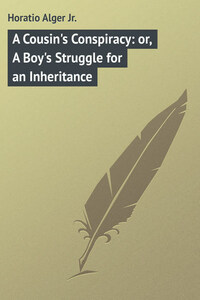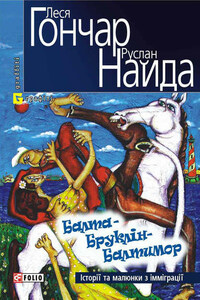CHAPTER I
IN A LONELY CABIN
On the edge of a prairie, in western Iowa, thirty years ago, stood a cabin, covering quite a little ground, but only one story high. It was humble enough, but not more so than the early homes of some who have become great.
The furniture was limited to articles of prime necessity. There was a stove, a table, three chairs, a row of shelves containing a few articles of crockery and tinware, and a bed in the far corner of the room, on which rested a man with ragged gray beard and hair, a face long and thin, and coal-black eyes.
It was evident he was sick unto death. His parchment-colored skin was wrinkled; from time to time he coughed so violently as to rack his slight frame, and his hand, thin and wrinkled, as it rested on the quilt that covered him, shook as with palsy.
It was hard to tell how old the man was. He looked over seventy, but there were indications that he had aged prematurely.
There was one other person in the room whose appearance contrasted strongly with that of the old man – a boy of sixteen, with brown hair, ruddy cheeks, hazel eyes, an attractive yet firm and resolute face, and an appearance of manliness and self-reliance. He was well dressed, and would have passed muster upon the streets of a city.
“How do you feel, Uncle Peter?” he asked as he stood by the bedside.
“I shall never feel better, Ernest,” said the old man in a hollow voice.
“Don’t say that, uncle,” said Ernest in a tone of concern.
There seemed little to connect him in his strong, attractive boyhood with the frail old man, but they had lived together for five years, and habit was powerful.
“Yes, Ernest, I shall never rise from this bed.”
“Isn’t there anything I can get for you, uncle?”
“Is there – is there anything left in the bottle?” asked Peter wistfully.
Ernest walked to the shelf that held the dishes, and took from a corner a large black bottle. It seemed light, and might be empty. He turned the contents into a glass, but there was only a tablespoonful of whisky.
“It is almost all gone, Uncle Peter; will you have this much?”
“Yes,” answered the old man tremulously.
Ernest lifted the invalid into a sitting posture, and put the glass to his mouth.
He drained it, and gave a sigh of satisfaction.
“It is good,” he said briefly.
“I wish there were more.”
“It goes to the right spot. It puts strength into me.”
“Shall I go to the village and buy more?”
“I – I don’t know – ”
“I can get back very soon.”
“Very well; go, like a good boy.”
“I shall have to trouble you for some money, Uncle Peter.”
“Go to the trunk. You will find some.”
There was a small hair trunk in another corner. Ernest knew that this was meant, and he lifted the lid.
There was a small wooden box at the left-hand side. Opening this, Ernest saw three five-dollar gold pieces.
“There are but three gold pieces, uncle,” he announced, looking toward the bed.
“Take one of them, Ernest.”
“I wonder if that is all the money he has left?” thought Ernest.
He rose and went to the door.
“I won’t be gone long, uncle,” he said. He followed a path which led from the door in an easterly direction to the village. It was over a mile away, and consisted of a few scattering houses, a blacksmith’s shop and a store.
It was to the store that Ernest bent his steps. It was a one-story structure, as were most of the buildings in the village. There was a sign over the door which read:
JOE MARKS,
Groceries and Family Supplies
Joe stood behind the counter; there were two other men in the store, one tall, gaunt, of the average Western type, with a broad-brimmed soft felt hat on his head and the costume of a hunter; he looked rough, but honest and reliable, that was more than could be said of the other. He may best be described as a tramp, a man who looked averse to labor of any kind, a man without a settled business or home, who cared less for food than drink, and whose mottled face indicated frequent potations of whisky.
Ernest looked at this man as he entered. He didn’t remember to have met him before, nor was there anything to attract him in his appearance.
“How are you, Ernest?” said Joe Marks cordially. “How’s Uncle Peter?”
“He’s pretty bad, Joe. He thinks he’s going to die.”
“Not so bad as that, surely?”
“Yes, I guess he’s right. He’s very weak.”
“Well, he’s a good age. How old is he?”
“I don’t know. He never told me.”
“He’s well on to seventy, I’m thinking. But what can I do for you?”
“You may fill this bottle; Uncle Peter is weak, he thinks it will put new life in him.”
“So it will, Ernest; there’s nothing like good whisky to make an old man strong, or a young man, for that matter.”
It is easy to see that Joe did not believe in total abstinence.
“I don’t drink myself!” said Ernest, replying to the last part of Joe’s remark.
“There’s nothing like whisky,” remarked the tramp in a hoarse voice.
“You’ve drunk your share, I’m thinking,” said Luke Robbins, the tall hunter.
“Not yet,” returned the tramp. “I haven’t had my share yet. There’s lots of people that has drunk more’n me.”
“Why haven’t you drunk your share? You hadn’t no objections, I reckon?”














